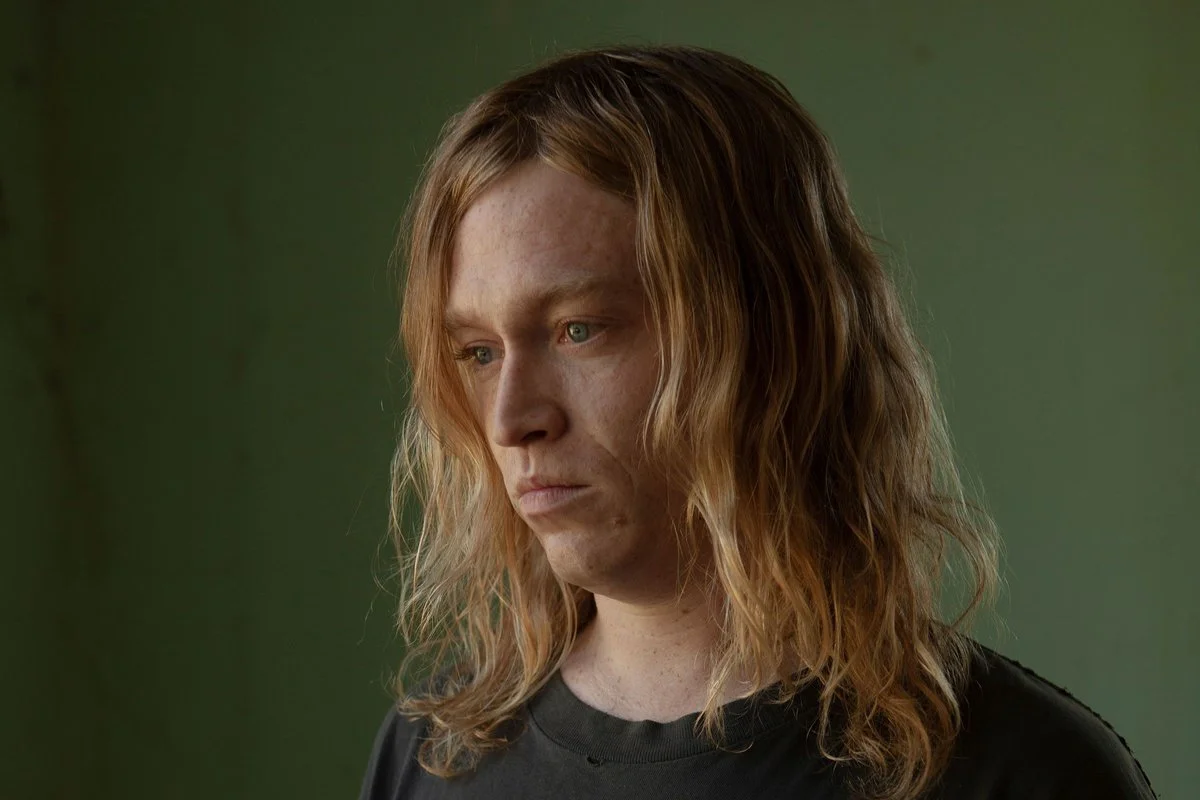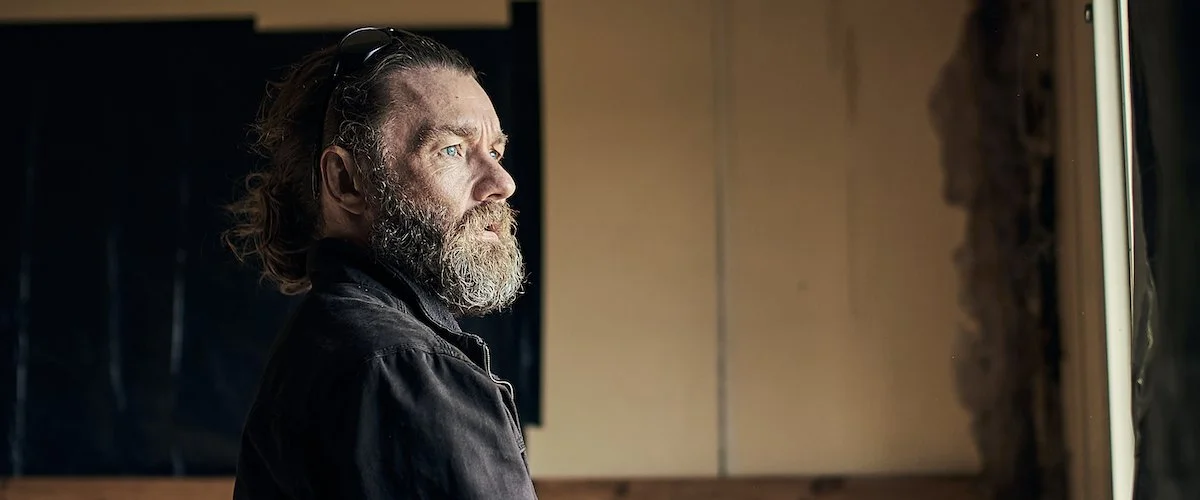Nitram Review
9/10
The great Francois Truffaut once said, “There’s no such thing as an anti-war film.” The idea that you can make a statement against a subject you claim to be criticizing, yet still make an entertaining film is murky waters. For me, one of the most brutal and resonant fictionalized portrayals of war is the book All Quiet on the Western Front by Erich Maria Remarque. Very few films come close to evocating the kind of emotions I felt reading that for the first time. When you make war into a film that is meant to be enjoyed, by design that is glamorizing the horrors that real people experienced. There are certain films like Elem Klimov’s harrowing Come and See that put more focus on the trauma of war and the atrocities. I can’t imagine anyone thinking that film romanticizes war. I don’t think there is a definitive answer to whether or not you can make a true anti-war film. Much in the same way that it is unclear as to whether a film about a mass shooter is sympathizing with a monster.
Nitram is a portrait of the man who ended up committing a mass shooting that killed 35 people in Port Arthur, Tasmania in 1996. I won’t write the murderer’s name because the media puts far too much emphasis on the identity and backstories of these shooters. This, in turn, helps inspires other mass shooters, because they know their life story will be blasted across the news and validate their horrific act. This has been proven time and time again. With that in mind, wouldn’t a film about the shooter be equally influential if watched by the wrong person?
I honestly don’t know how to answer that. Many will find Nitram far too uncomfortable to enjoy. I wouldn’t blame anyone for deciding against seeing it. I was iffy about seeing the film as well. I was nervous that it would glorify the killer with a sympathetic background or give a simplistic reason to explain his actions. The film makes neither of those mistakes. I admire what the director Justin Kurzel has created here. He manages to strike a balance between showing the reality of a tortured soul without trying too hard to make a misunderstood anti-hero.
Nitram (Caley Landry Jones) is a socially awkward young man living with his parents in Port Arthur. He has very few social interactions with anybody outside his home. His parents don’t seem to know how to handle him. His mom (Judy Davis) does not neglect him, but there is a disconnect in their interactions. She is critical of his behavior while his father (Anthony LaPaglia) tries to be more diplomatic. There is a hint of affection between Nitram and his father. You can see that his father is worried about Nitram and is trying to be there for him. There is a sweet moment between the two when the father shows Nitram a property he put down an offer on. He wants to turn this into a bed and breakfast that his son can help run.
This interaction is brief, they don’t have a deep and meaningful discussion. What we do get, is Nitram seeing how much this farm means to his father. It is enough to see that this boy may not be an entirely lost cause. The sad truth is revealed as we observe the boy’s mental decline. This is the key to what makes the film work. Much like Lynn Ramsey’s fantastic We Need To Talk About Kevin, there are no real answers to explain why this boy killed people. He did not come from an abusive home and there was no immediate indication from an outsider’s perspective that he would go this far. The choice he made to end these people’s lives appeared to come out of nowhere.
If you look closely though, there are red flags in Nitram’s life that indicate he could be dangerous. The social alienation is the first sign that he may not be mentally healthy. His few interactions with the outside world are jarring and strange. He tries to start a lawnmowing business and when one woman turns his service down, she has to ask Nitram to move his foot from the door frame so she can close it. These moments may seem inconsequential in the grand scheme of things, but they are enough to show he does not understand boundaries like most of us do. There is one scene involving Nitram using violence against someone before the shooting in a way that was truly disturbing.
One of the earliest signs is Nitram’s tendency to grab the steering wheel from whoever is driving and jolt it, nearly causing accidents. There are no scenes of him carrying out cruelty in ways that serial killer films often do. He does not torture or hurt animals. If anything, he has a genuine affinity with them. This is a deliberate choice to show how we can never know the darkness lying in wait behind the eyes of someone we think we know. If this boy’s life had gone a different direction, would he still have ended up a murderer no matter what?
He forms a close bond with a local retired actress and wealthy heiress Helen (Essie Davis.) This starts with him mowing her lawn and soon progresses to walking her numerous dogs. The relationship they have is difficult to decipher. There is no hint of sexual tension between them apart from one moment later in the film when he says goodnight to her while standing wearing a shirt and underwear. This is less a sign of budding sexuality and more a display of his social ineptitude.
This friendship with Helen is concerning for his parents. They have no idea how to interpret their dynamic. She is generous with her wealth and even buys him a car. When his parents finally meet her, the mom has a one-on-one moment with Helen where she tells a troubling story. When Nitram was a boy, they used to play a form of hide and seek. One day, he vanished, and she had no idea where he was. She was distraught and tried searching for over an hour. Eventually, she gave up and went back to the car. She discovered him in the backseat, laughing at her anguish. Despite Helen’s closeness with the boy, even she can see how concerning this is.
If you know what happened at Port Arthur in 1996, then you know how the film ends. I was surprised by how tasteful the film is at showing what happened. You never see any of the actual massacre on screen. This was a smart choice by the director. Any attempt to visualize a mass shooting could easily tip into exploitation. Nitram attracted a fair amount of controversy upon release, especially in Tasmania where it was condemned by numerous people. I would never argue against their decision to criticize the film. The shooting is a painful memory for many people. However, from my perspective, I think the film did a great job with the story and never glorified the killer.
Caleb Landry Jones portrays a slowly imploding man perfectly. He is just awkward enough to be believable and never over the top. He even does a convincing Australian accent, a difficult feat for an American actor. Justin Kurzel has shown a mastery of the slow burn drama. His previous films such as Snowtown are brilliant psychological explorations of damaged people, much like Nitram. He doesn’t telegraph their thoughts and feelings. Their scars are seared under the skin. They emerge from the pores, creeping out like the monster under our beds. If you are comfortable with dark subject matter, then I highly recommend Nitram.








